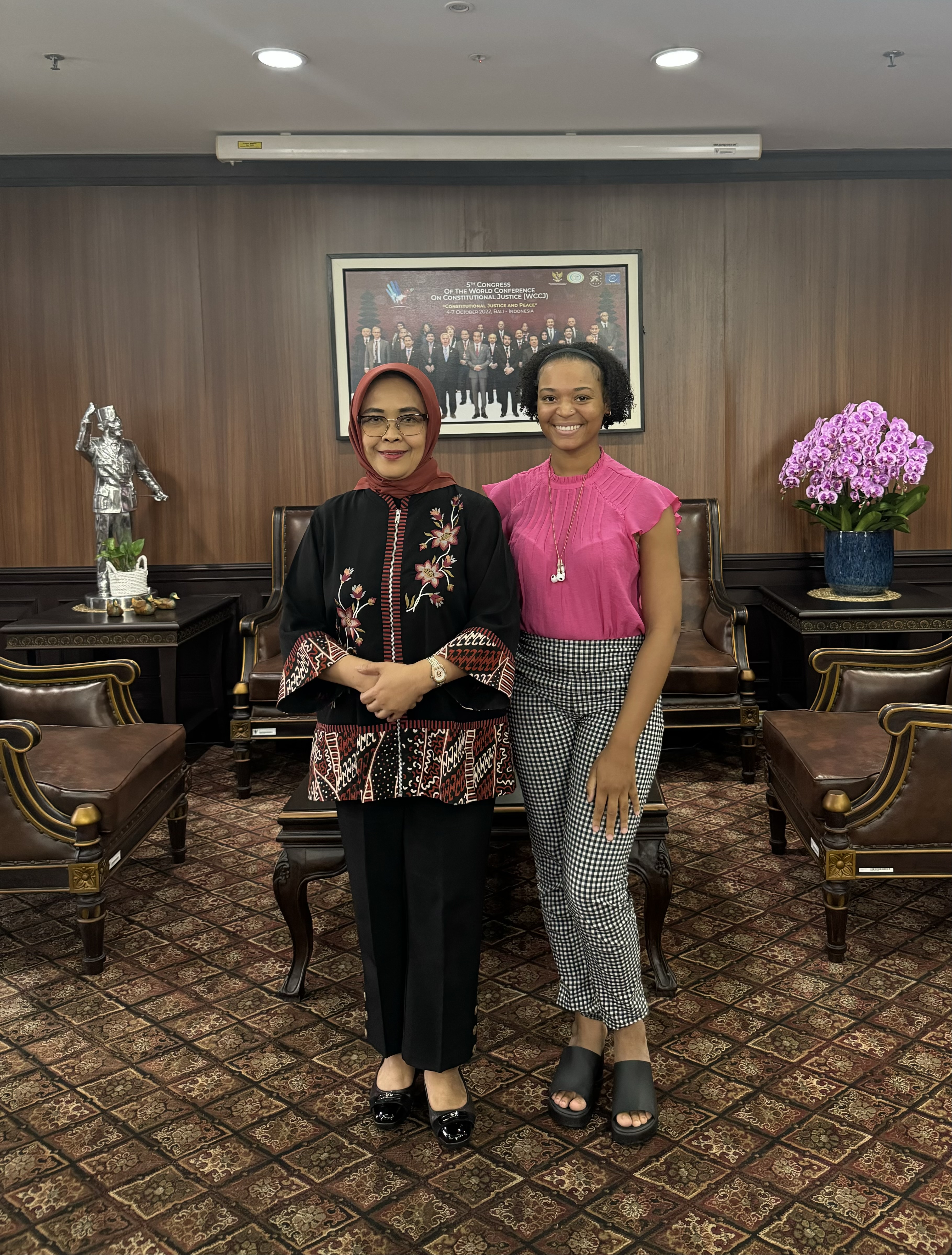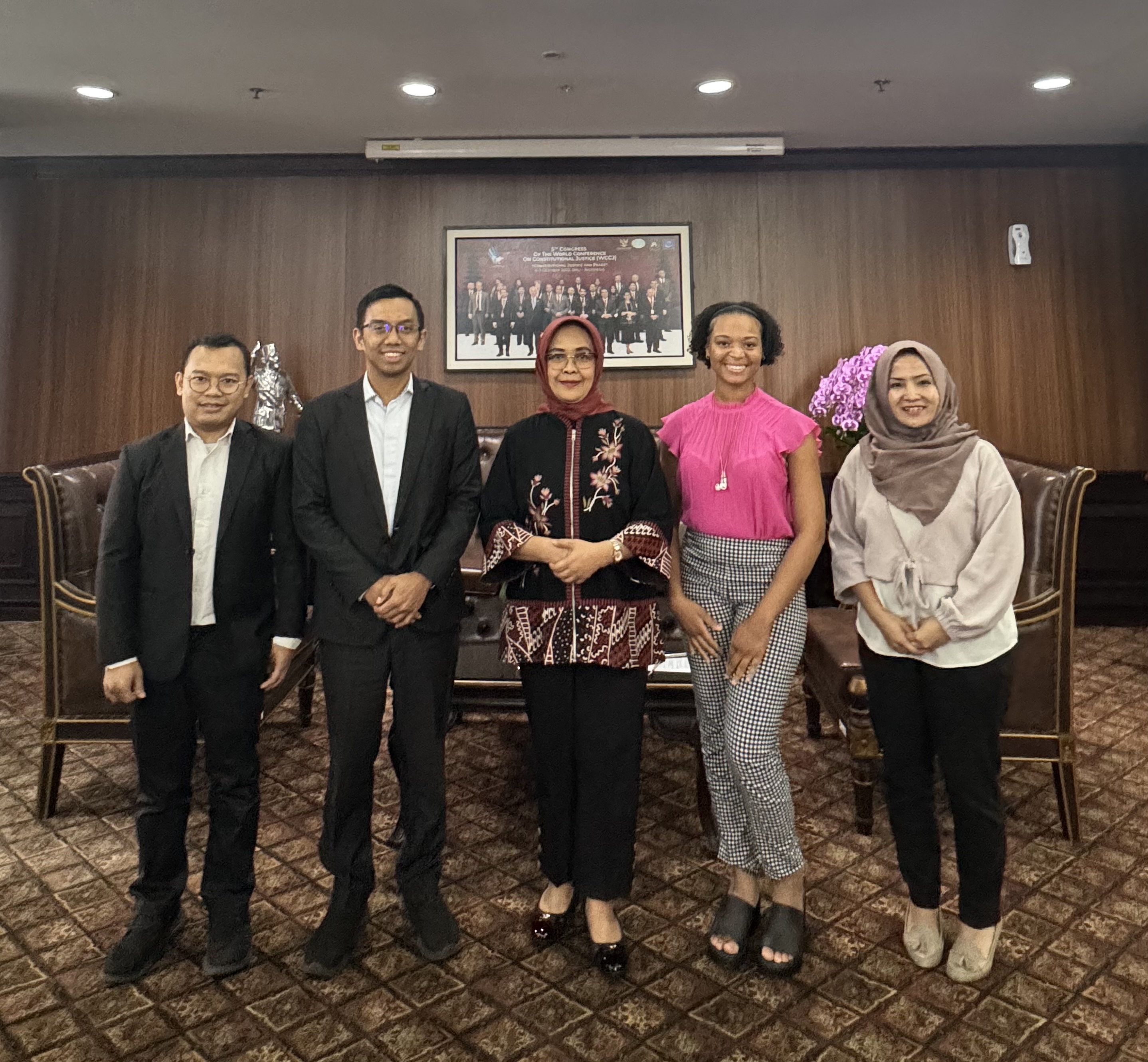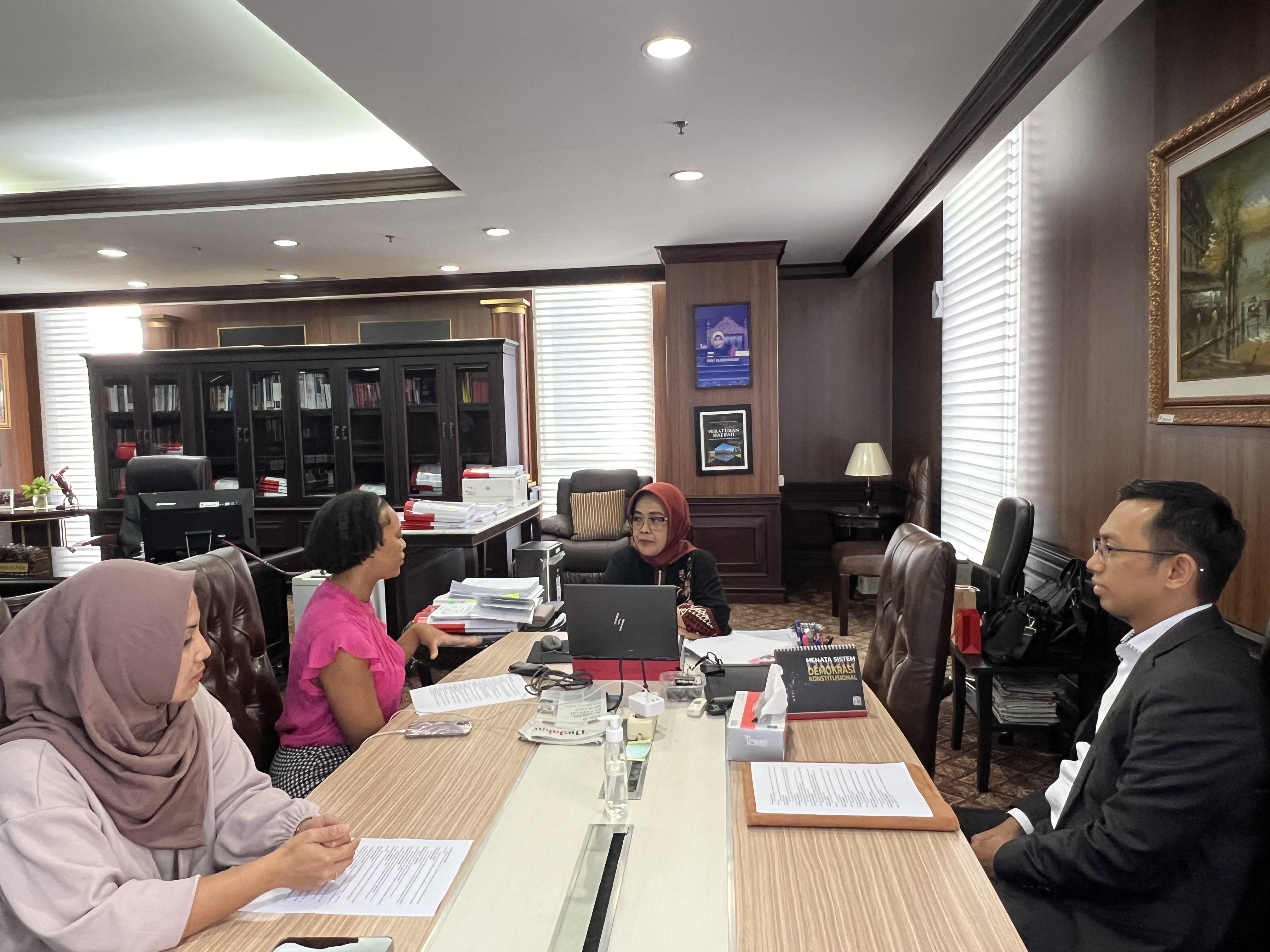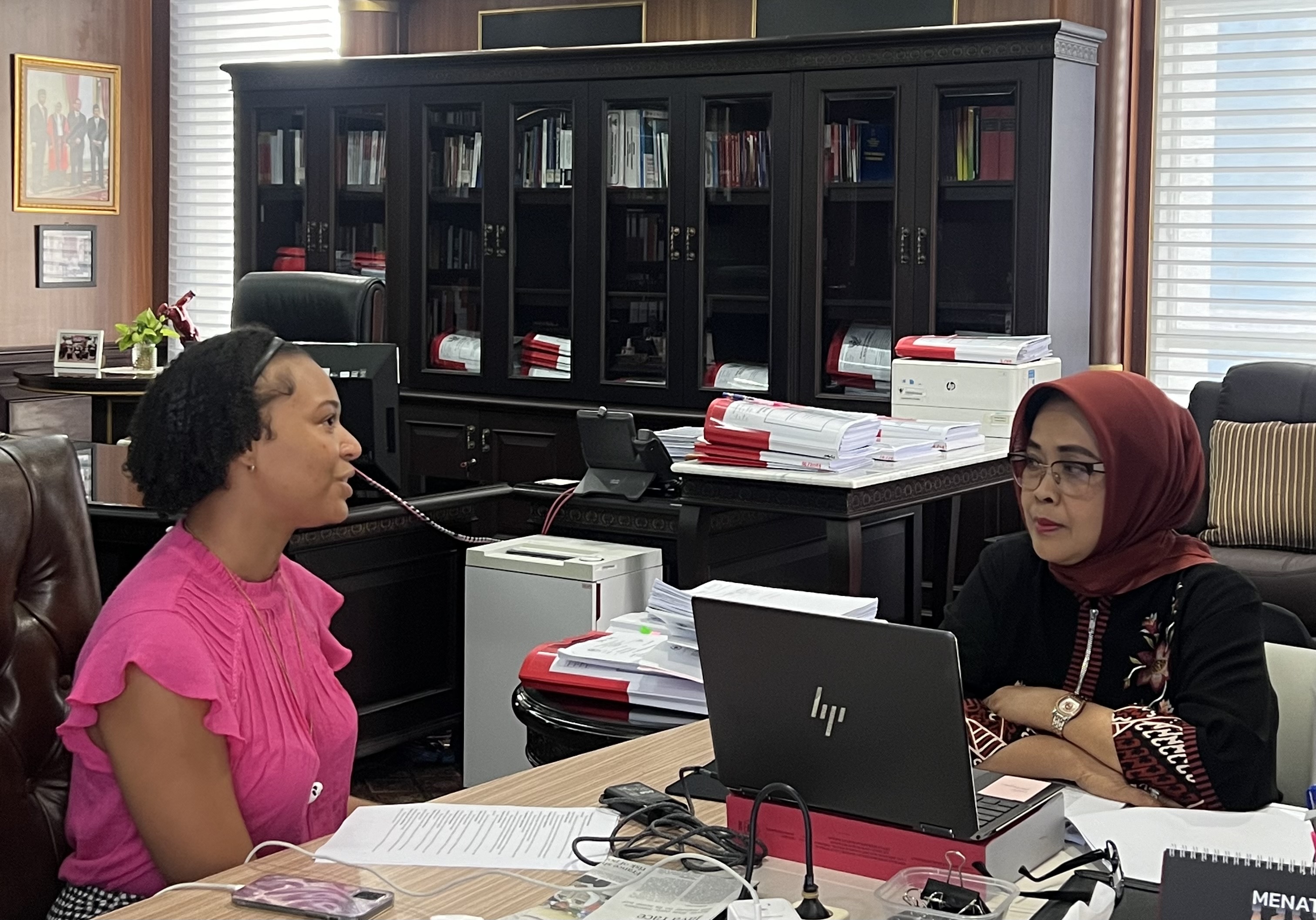Take VII: From Educator to Constitutional Court Justice
 Today, I had the pleasure of meeting Professor Dr. Enny Nurbaningsih, S.H., M.Hum., a woman whose career path is as inspiring as it is impressive. From her roots in education to her role as a justice on Indonesia's Constitutional Court, her journey is a testament to her dedication and profound respect for the rule of law.
Today, I had the pleasure of meeting Professor Dr. Enny Nurbaningsih, S.H., M.Hum., a woman whose career path is as inspiring as it is impressive. From her roots in education to her role as a justice on Indonesia's Constitutional Court, her journey is a testament to her dedication and profound respect for the rule of law.
Professor Enny's story begins in the classroom, where she dedicated herself to teaching law with a passion that left a lasting impact on her students. With a Bachelor's degree in Law (S.H.), a Master's in Humanities (M.Hum.), and a Doctorate in Law, she not only mastered her subject but also became a beacon of knowledge and guidance. Her teaching wasn't just about the books; it was about instilling a deep understanding and respect for legal principles, inspiring her students to pursue justice in their careers.
 Her commitment extended beyond lectures and textbooks. Professor Enny engaged in extensive research, contributing significantly to the field of constitutional law in Indonesia. Her scholarly work often emphasized the importance of creating laws that harmonize with existing regulations, ensuring they work together seamlessly within Indonesia's complex legal framework.
Her commitment extended beyond lectures and textbooks. Professor Enny engaged in extensive research, contributing significantly to the field of constitutional law in Indonesia. Her scholarly work often emphasized the importance of creating laws that harmonize with existing regulations, ensuring they work together seamlessly within Indonesia's complex legal framework.

Natural Transition to the Bench
Recognizing her exceptional contributions to law and education, Professor Enny made a significant transition from academia to the Constitutional Court. This move was driven by a desire to influence the legal system more directly, ensuring that the laws reviewed and passed by the Court are consistent and fair, and that they align with other regulations in Indonesia. Her work helps maintain legal certainty and protect the rights of all Indonesians, making her role incredibly vital.
Becoming a Justice: The Path to the Constitutional Court
The path to becoming a justice on the Constitutional Court is challenging and requires a blend of deep legal knowledge, experience, and unwavering integrity. For Professor Enny, this journey included:
- Strong Educational Foundations: A thorough education in law, including advanced degrees, is a must. Her expertise in constitutional law and related fields laid the groundwork for her judicial career.
- Extensive Professional Experience: Her extensive experience in legal practice, academia, and research equipped her with the skills needed to interpret and apply constitutional principles effectively.
- A Rigorous Selection Process: Becoming a justice involves being nominated, undergoing a thorough vetting process, and being interviewed. This ensures that only the most qualified and ethical individuals are chosen.
- Presidential Appointment: Finally, justices are appointed by the President of Indonesia, often after consultation with the legislature and other key bodies, ensuring a fair and balanced selection process.
A Vision for Justice
 Meeting Professor Enny Nurbaningsih left me with a deep sense of admiration and respect. Her journey from being an educator to a key figure in Indonesia's highest court demonstrates her unwavering commitment to justice and the law. She continues to work tirelessly to ensure that Indonesia's legal framework is coherent, fair, and just, safeguarding the rights of all citizens.
Meeting Professor Enny Nurbaningsih left me with a deep sense of admiration and respect. Her journey from being an educator to a key figure in Indonesia's highest court demonstrates her unwavering commitment to justice and the law. She continues to work tirelessly to ensure that Indonesia's legal framework is coherent, fair, and just, safeguarding the rights of all citizens.
Professor Enny's story is not just about her achievements; it's about the impact she's had on countless lives through her teaching and judicial work. She stands as a role model for aspiring legal professionals, showing that dedication, integrity, and a passion for justice can truly make a difference. Her legacy will undoubtedly inspire future generations to uphold the principles of justice and equality.